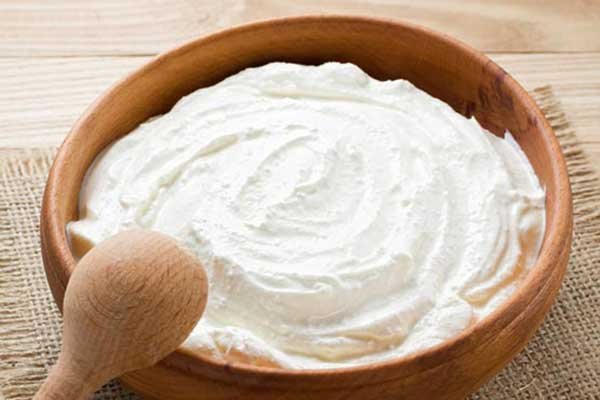The Power of Probiotics
In recent years, the importance of the gut microbiome in maintaining overall health and well-being has become increasingly evident. Among the many benefits associated with a healthy gut microbiome, the role of probiotics in promoting brain health and slowing down the aging process has gained significant attention. Probiotics, often referred to as “good bacteria,” have been shown to have a profound impact on cognitive function, neurotransmitter production, and even protection against neurodegenerative diseases. This article will delve into the power of probiotics and how they can boost brain health and aging.

Understanding the Gut-Brain Connection
The gut-brain connection refers to the bidirectional communication network between the gastrointestinal tract and the brain. This connection is facilitated by various pathways, including the nervous system, immune system, and the release of neurotransmitters. Research has revealed that the gut microbiome plays a crucial role in this connection, influencing brain function and behavior.
Probiotics: A Key to Optimal Brain Health
Probiotics, which are live microorganisms, are known for their ability to restore and maintain a healthy balance of gut bacteria. By promoting a diverse and thriving gut microbiome, probiotics can support optimal brain health. They help regulate the production of neurotransmitters, reduce inflammation, and enhance the integrity of the intestinal barrier. These factors collectively contribute to improved cognitive function and overall well-being.
How Probiotics Support Healthy Aging
Aging is a natural process that is associated with a decline in various bodily functions, including cognitive health. However, studies have shown that the consumption of probiotics can have a positive impact on aging. Probiotics help to maintain a healthy gut environment, improve nutrient absorption, and reduce chronic inflammation, which are all factors that can contribute to healthy aging.
Strengthening Cognitive Function with Probiotics
Cognitive function encompasses various mental processes, such as memory, attention, and problem-solving abilities. Probiotics have been found to enhance cognitive function through their influence on neurotransmitters. By promoting the production of neurotransmitters like serotonin and dopamine, probiotics can improve mood, memory, and cognitive performance.
The Impact of Probiotics on Neurotransmitters
Neurotransmitters are chemical messengers that play a vital role in regulating brain function. Probiotics have been shown to influence the production and function of neurotransmitters, which can have a significant impact on mental well-being. By promoting the production of neurotransmitters like GABA (gamma-aminobutyric acid), probiotics can help reduce anxiety and improve overall brain health.
Probiotics and the Reduction of Age-Related Cognitive Decline
Age-related cognitive decline is a common concern among older adults. However, research suggests that probiotics may offer a potential solution. Studies have shown that certain strains of probiotics can improve cognitive function, memory, and attention in older adults, potentially slowing down age-related cognitive decline.
Exploring the Mechanisms of Probiotics in Brain Health
The mechanisms through which probiotics exert their beneficial effects on brain health are still being investigated. However, researchers believe that probiotics modulate inflammation, enhance the gut barrier function, and regulate the production of neuroactive compounds. These mechanisms collectively contribute to improved brain health and cognitive function.
The Role of Probiotics in Protecting against Neurodegenerative Diseases
Neurodegenerative diseases, such as Alzheimer’s and Parkinson’s, are characterized by the progressive deterioration of brain function. Probiotics have shown promise in protecting against these diseases by reducing inflammation, enhancing the gut-brain axis, and promoting the clearance of toxic protein aggregates in the brain. While more research is needed, these findings offer hope for potential interventions in the future.
Harnessing Probiotics for Mental Well-being
Mental well-being is essential for overall health and quality of life. Probiotics have been found to have a positive impact on mental health by reducing symptoms of depression and anxiety. These effects are believed to be mediated by the gut-brain axis, highlighting the importance of a healthy gut microbiome in maintaining mental well-being.
Choosing the Right Probiotics for Brain Health
When selecting probiotics for brain health, it is crucial to choose strains that have been extensively studied and shown to have beneficial effects. Look for strains such as Lactobacillus and Bifidobacterium, as they have been associated with improved cognitive function and mental well-being. Additionally, consider factors such as dosage, formulation, and viability to ensure the probiotics reach the gut in sufficient quantities.
Harness the Potential of Probiotics
The power of probiotics in boosting brain health and aging cannot be underestimated. With their ability to support the gut-brain connection, enhance cognitive function, regulate neurotransmitters, and protect against neurodegenerative diseases, probiotics offer exciting possibilities for improving brain health and overall well-being. By incorporating probiotics into our daily routine and making informed choices, we can harness their potential and pave the way for a healthier, sharper, and more vibrant future.